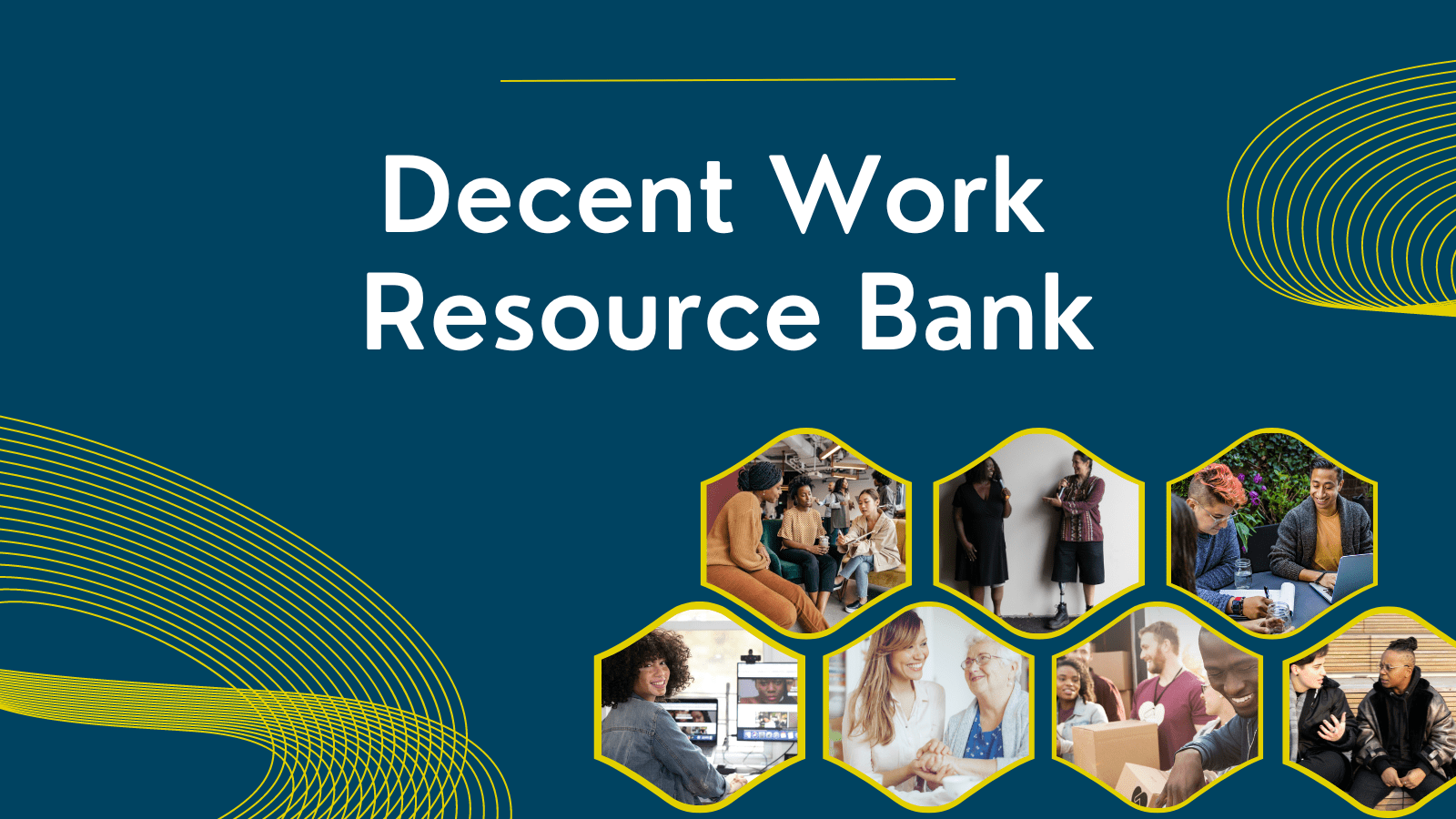Moving beyond examples and into action: Decent work as a practice
October 7 is internationally known as World Day for Decent Work – and this year we want to offer more than just examples of what organizations are doing in our sector. We think it’s important to highlight actions that need to be practiced for decent work to be a reality for nonprofit workers.
In our engagement with Black, Indigenous, and racialized workers within the nonprofit sector, it has become clear that advancing racial justice is foundational to the commitments we make to advancing decent work practices. If the goal is to center equity, advance racial justice and Indigenous sovereignty, that requires practice, consistency and honouring the failures that come with the work.
Embedding decent work practices can help our sector address the ongoing HR crisis, “quiet quitting”, burnout and mental health crisis, while also advancing structural and systemic change within our organizations.
Dismantling dominant systems of oppression is an ongoing journey that requires consistent awareness.
As a sector we need to practice asking questions continuously.
Questions like: where is funding being allocated and who is being held accountable to ensure that equity-deserving groups remain a priority? The pandemic offered unprecedented possibilities around the flexibility to be responsive to the needs of nonprofits. As a sector, we have to remain innovative and agile to adapt to our ever-changing circumstances. Funders, from government to family foundations, have the power to support nonprofits in their pursuit of decent work for all.
How can the nonprofit sector be consistent in our efforts? Allyship around issues of oppression, racial justice and Indigenous sovereignty, requires consistency and an ongoing commitment. If it’s not embedded in the daily work, it’s performative. It is not enough to amplify a campaign like OneDaysPay on September 30 and never speak of Truth and Reconciliation again. We need to practice reciprocity, in conjunction with getting specific on how to adapt the 94 calls to action and support Truth and Reconciliation efforts.
We need to practice naming/identifying the culture within an organization.
This is vital when it comes to addressing systemic racism and colonialism. Naming culture means getting curious about “the why” behind the norms within an organization. In our podcast episode, for example, on Pay Transparency and Decent Work, Paul Taylor names the coded nature of silence that is rooted in white supremacy when we are not upfront about pay scales and pay equity within an organization.
Example of how to advance decent work: For the last several years, our partners at the Toronto Neighborhood Centers have been chipping away at unearthing cultures of white supremacy within their network. They host monthly community of practice sessions where staff (management, senior leadership to frontline staff) sit with the uncomfortable questions that their members grapple with and share strategies, space and support. There is much discomfort around practicing culture shifts, implementing different HR and organizational strategies but advancing decent work will require us to work through the uneasiness to move forward.
We need to practice examining our relationships with time and practice slowing down.
Flex time, four-day work weeks, payment for job candidates for their labour in preparing for interviews are HR practices that respect the value of our time and are rooted in equity, anti-colonialism, and racial justice. Larissa Crawford, founder of Future Ancestors, describes how time is a medium of anti-colonial violence in this statement.
In a recent training I attended, ‘Whiteness at Work – Liberating Our Time Is Equity Work’, we collectively explored the intersections of race and time, and the need to construct new time realities.
Some behavioural and organizational practices that emerged within the session included:
- Stop praising speed. Intentional and well thought out work plans take into account how ableism shows up in the workplace; acknowledging that some folks will excel in short term projects, while others more long term.
- Implement shut down periods after major events within the organization that impact staff capacity (i.e. conferences).
- Be data informed, not data driven. Be scrupulous about what needs metrics and why data is being collected
We acknowledge that these practices are not the only solutions to advancing decent work. We also know that this is challenging work and are grateful for organizations across the sector that are leading the way. Family Services Ontario, The Anti-Black Racism and Systemic Discrmination Collective of Peel Region and Black North Initiative Playbook are examples of organizations creating solutions, and doing inspiring work to support cultural shifts.
Are there additional organizational practices that center decent work that we should know about? Share them with us by emailing yamikani@theonn.ca.
Related Resources:
- Racial Equity Playbook – BlackNorth Initiative
- Toolkit for EDI – Family Service Ontario
- Anti-Black racism and systemic discrimination toolkit – The Anti-Black Racism and Systemic Discrimination Collective of Peel Region
- Indigenous Ally toolkit – Montreal Indigenous Community Network




